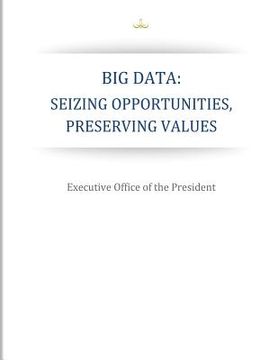Synopsis "Big Data: Seizing Opportunities, Preserving Values (in English)"
Since the first censuses were taken and crop yields recorded in ancient times, data collection and analysis have been essential to improving the functioning of society. Foundational work in calculus, probability theory, and statistics in the 17th and 18th centuries provided an array of new tools used by scientists to more precisely predict the movements of the sun and stars and determine population-wide rates of crime, marriage, and suicide. These tools often led to stunning advances. In the 1800s, Dr. John Snow used early modern data science to map cholera "clusters" in London. By tracing to a contaminated public well a disease that was widely thought to be caused by "miasmatic" air, Snow helped lay the foundation for the germ theory of disease.Gleaning insights from data to boost economic activity also took hold in American industry. Frederick Winslow Taylor's use of a stopwatch and a clipboard to analyze productivity at Midvale Steel Works in Pennsylvania increased output on the shop floor and fueled his belief that data science could revolutionize every aspect of life.2 In 1911, Taylor wrote The Principles of Scientific Management to answer President Theodore Roosevelt's call for increasing "national efficiency": Today, data is more deeply woven into the fabric of our lives than ever before. We aspire to use data to solve problems, improve well-being, and generate economic prosperity. The collection, storage, and analysis of data is on an upward and seemingly unbounded trajectory, fueled by increases in processing power, the cratering costs of computation and storage, and the growing number of sensor technologies embedded in devices of all kinds. In 2011, some estimated the amount of information created and replicated would surpass 1.8 zettabytes. In 2013, estimates reached 4 zettabytes of data generated worldwide.

